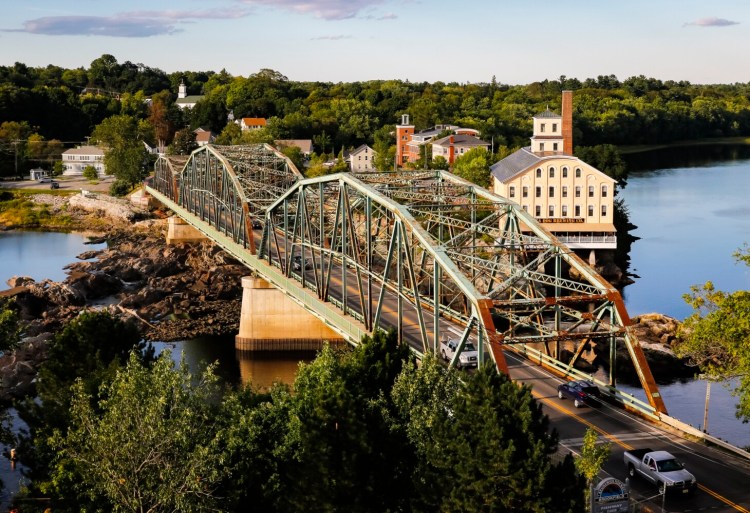Maine could receive at least $1.9 billion for roads, bridges, public transit, electric vehicle charging and broadband internet from the Senate compromise infrastructure bill pending in Congress.
The $1 trillion bill is still being debated, but on Wednesday the White House put out partial estimates of what each state might receive over the next five years if it passes. Estimates did not include sewer and water projects, the power grid, airports and other items.
Maine is in line for $1.3 billion in highway funding and $225 million for bridge repair and construction, according to the White House. Highway agencies can compete for $16 billion in highway funding grants and $12.5 billion for bridges.
The state would have received some of its direct funding through federal formulas anyway, but the bill increases the amount states would receive, according to a spokesman for Sen. Susan Collins, R-Maine, one of the senators who negotiated the compromise bill. About $550 billion in the bill is new spending.
If the bill passes, the Maine Department of Transportation could receive $50 million more in federal funding in the first year, it said. Maine’s roads and bridges are perpetually underfunded, with an unmet need of about $197 million in 2020.
“We look forward to seeing the details in the coming weeks so we can incorporate them into a revised calculation of need, costs and resources as part of determining how to deliver the safest and most reliable transportation possible for all Maine people, our businesses and other users of the system,” Transportation Commissioner Bruce Van Note said in a statement.
Maine transit agencies could get $241 million from the bill, which does not include money for Amtrak’s northeast corridor, according to the Greater Portland Council of Governments, the agency that oversees regular federal funding disbursements.
Some Portland-area transit agencies and planners propose expanding the region’s transit network to increase long-term ridership and recover from a loss of riders and income during the pandemic.
While the council is awaiting specific information, “the proposed infrastructure bill has the potential to significantly improve public transit in our region, help maintain vehicles and vessels, modernize the system and deliver higher-quality transit services,” Transportation Director Chris Chop said in a statement.
The bill includes new funding to expand electric vehicle infrastructure and high-speed internet.
Maine could receive $19 million to build out electric vehicle chargers, and help pay for up to 200 high-speed vehicle chargers across the state, doubling the number of chargers currently installed, said Michael Stoddard, executive director of Efficiency Maine. That could service up to 35,000 electric vehicles, far above the 5,000 now on Maine roads, he added.
“It’s exciting to think we can see a pathway to fund infrastructure we are really going to need in the next decade,” Stoddard said. “This would allow us to put chargers throughout the state to serve rural and urban communities alike, I think that is pretty important.”
Broadband internet, which received a boost from rounds of coronavirus relief packages, would receive at least $100 million as well as opportunities for grant funding.
Maine lawmakers this year established the Maine Connectivity Authority to oversee investment of an unprecedented amount of money for broadband internet in the state. Almost 83,000 – about 15 percent – of Maine households don’t have access to high-speed internet, according to state estimates.
“With these funds, we can expand affordable broadband to new areas of our state, improve speeds in existing service areas, and usher in new opportunities to strengthen our economy, connect our people, and build a better, brighter future,” Gov. Janet Mills said in a statement.
Send questions/comments to the editors.




Success. Please wait for the page to reload. If the page does not reload within 5 seconds, please refresh the page.
Enter your email and password to access comments.
Hi, to comment on stories you must . This profile is in addition to your subscription and website login.
Already have a commenting profile? .
Invalid username/password.
Please check your email to confirm and complete your registration.
Only subscribers are eligible to post comments. Please subscribe or login first for digital access. Here’s why.
Use the form below to reset your password. When you've submitted your account email, we will send an email with a reset code.